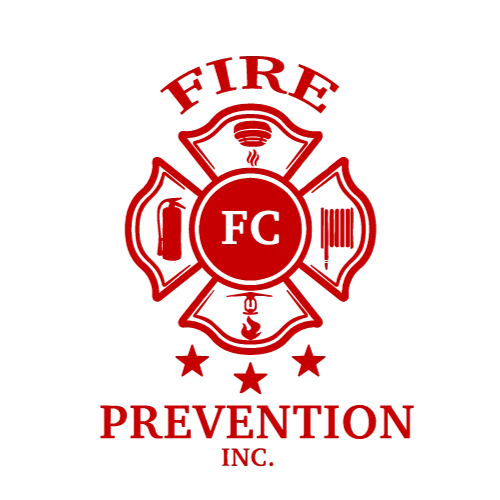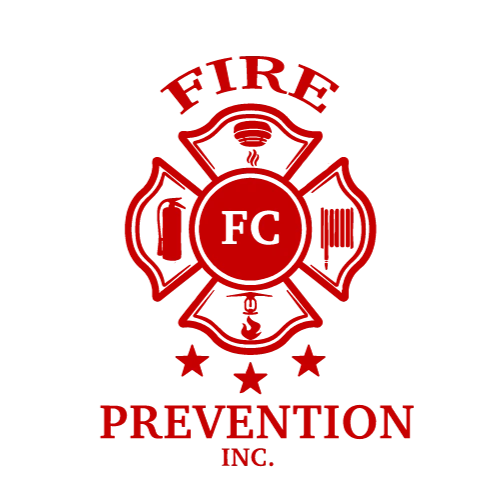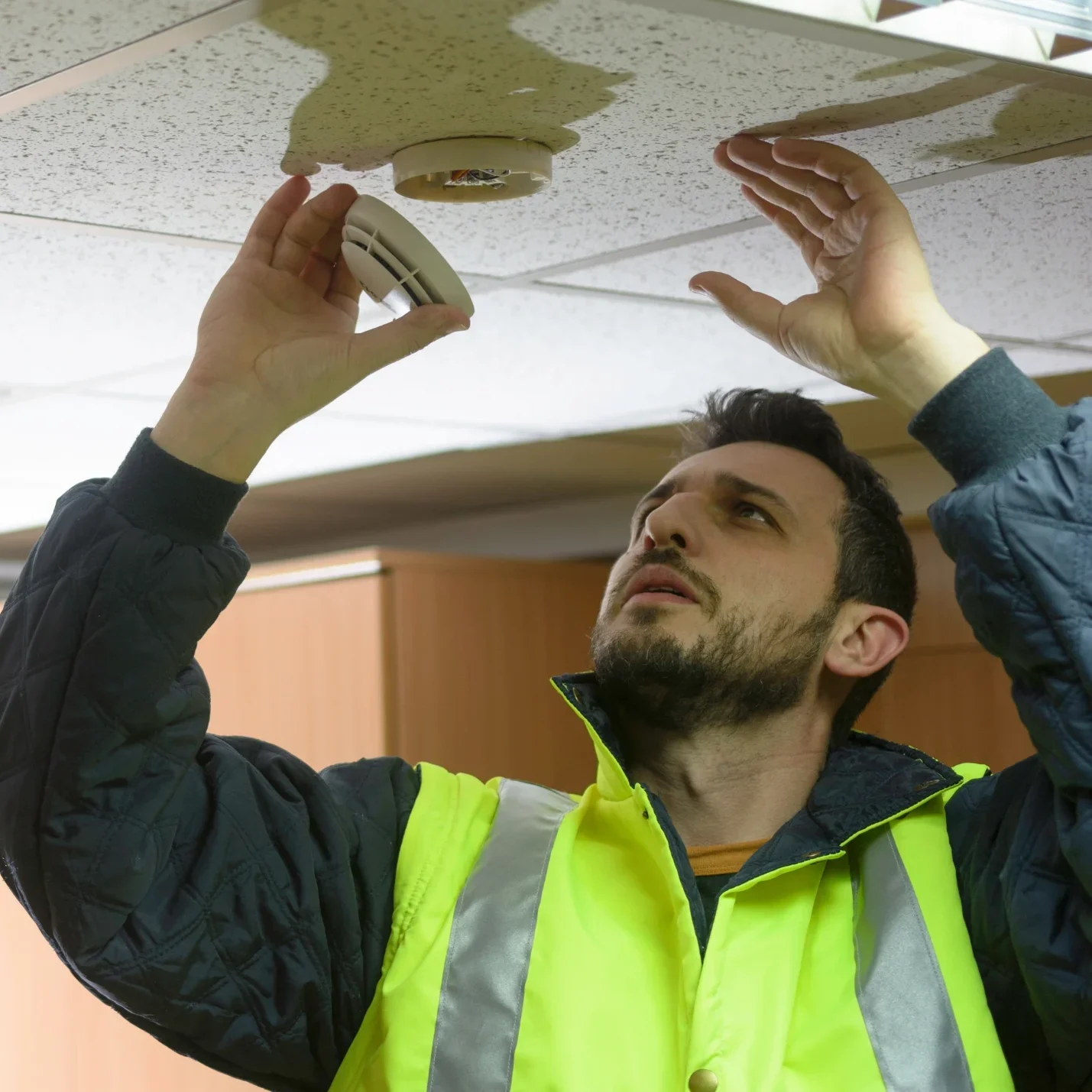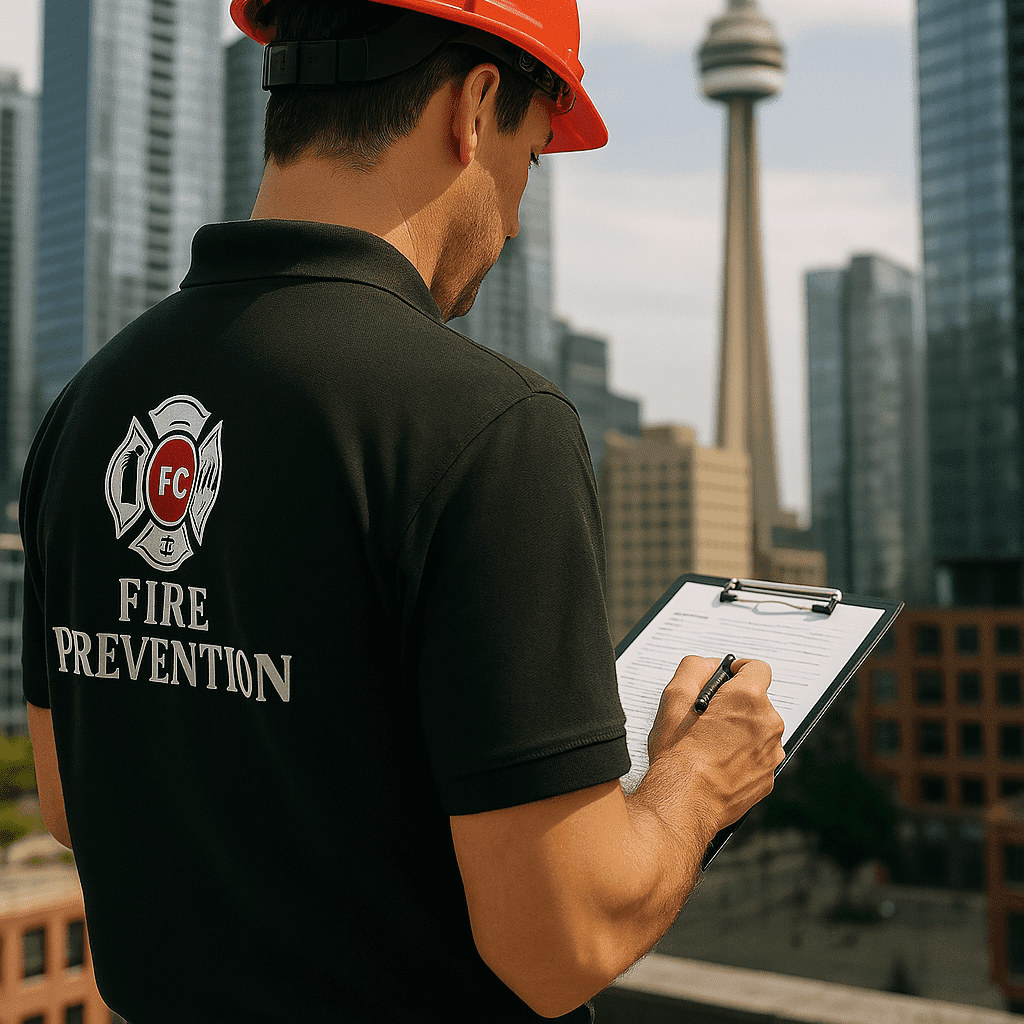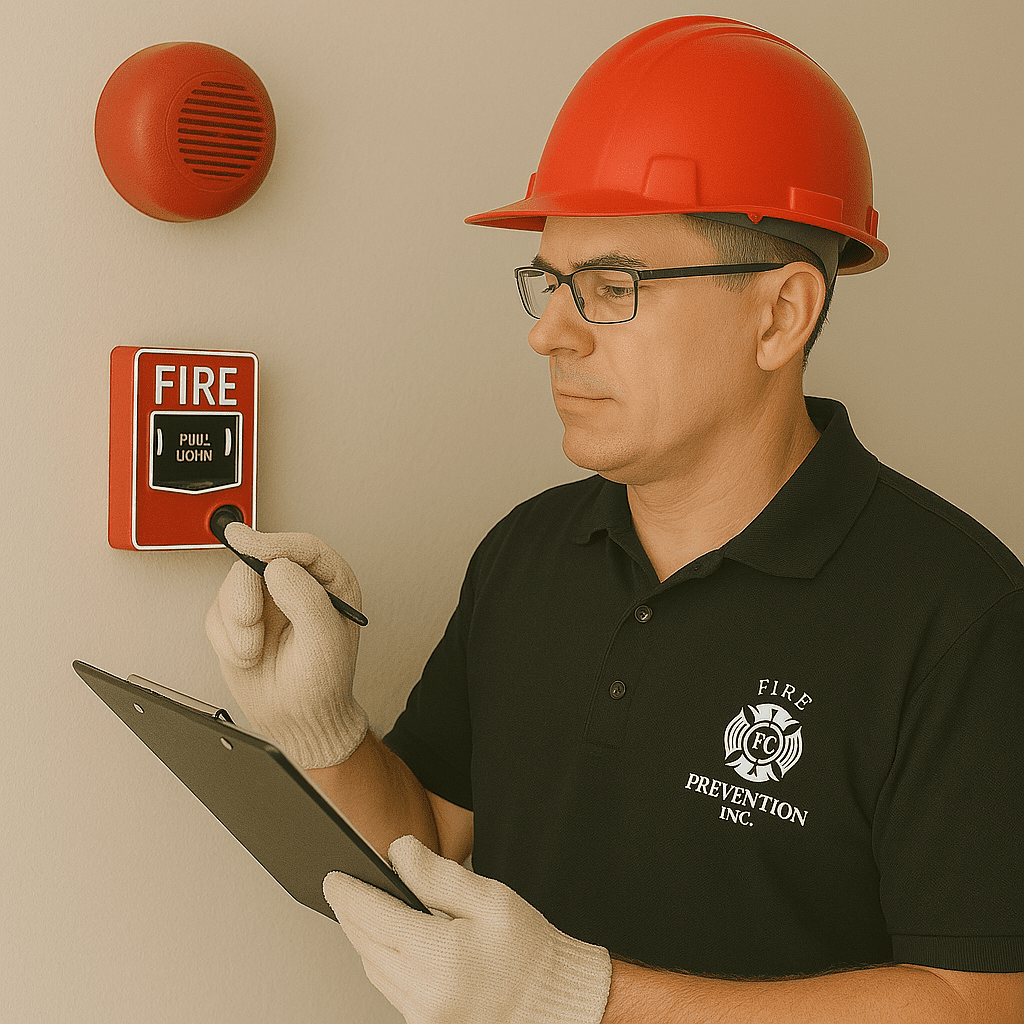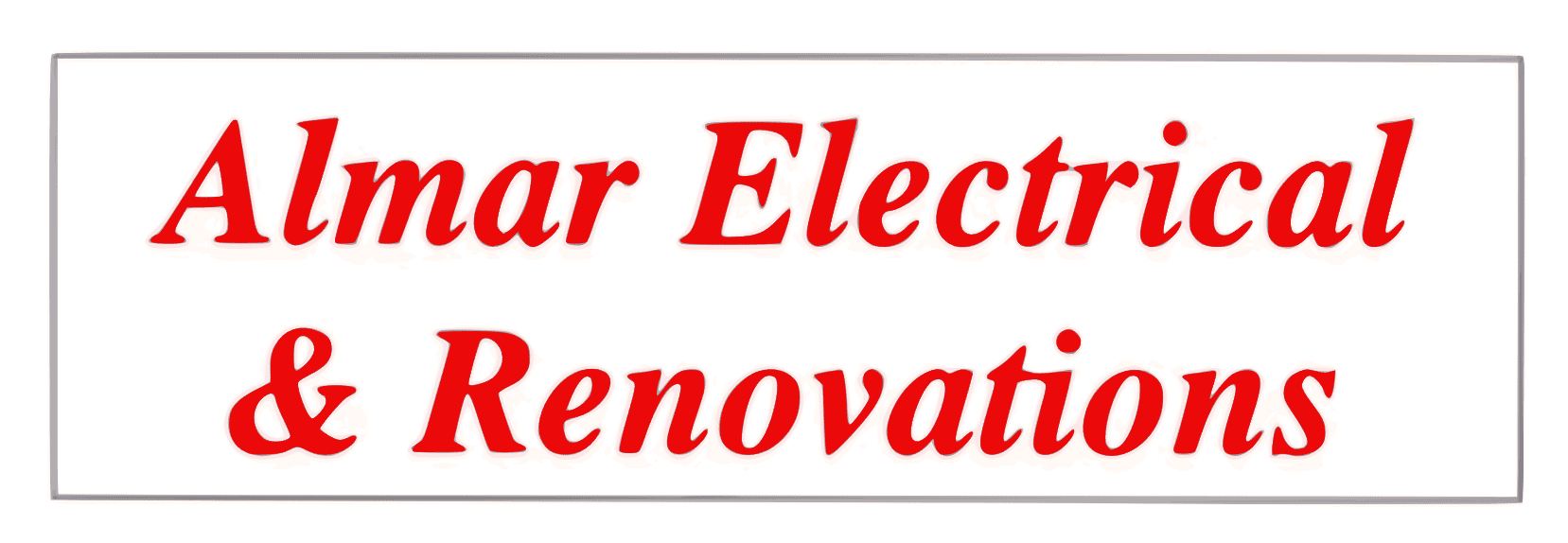Toronto’s Trusted Experts in Fire Safety Inspections, Alarm Systems & Suppression Services
FC Fire Prevention is committed to delivering exceptional fire safety services to commercial buildings, residential condos, local businesses, restaurants, and all facilities requiring fire inspections in Toronto and the surrounding areas.
Comprehensive Fire Safety Inspections
We offer detailed fire safety inspections that comply with Ontario Fire Code requirements, including annual inspections, fire extinguisher inspections, and thorough reviews of fire suppression systems.
Fire Alarm Inspection & Maintenance
Ensure your property’s safety with our professional fire alarm inspection services, covering full system testing and maintenance for commercial buildings, restaurants, condos, and local businesses.
Expert Fire Suppression Systems Installation & Inspection
Our certified technicians provide installation, inspection, and ongoing maintenance of fire suppression systems, including sprinkler and kitchen suppression setups.
Local Toronto Fire Inspection Specialists
Serving residential condos, commercial properties, restaurants, and local businesses, our experienced team ensures your property remains compliant and protected year-round.
Fire Extinguisher Inspection & Certification
Convenient, professional fire extinguisher inspection services available near you. Stay compliant and safe with certified inspections and clear tagging.
We Offer Fire inspections and Testing.
We install fire systems, tailored to your needs.
designing and adapting fire safety strategies.
Facing fire system issues? We’re on it, ensuring uninterrupted protection.
prepared to respond to any emergency.
guide you through Toronto’s fire safety certification.
Protect Your Toronto Business with Comprehensive Fire Protection Services
Protect your business with certified fire safety solutions tailored for Toronto’s commercial, industrial, and food service sectors.
Your Local Fire Protection Company
FC Fire Prevention is a trusted fire protection company in Toronto, serving commercial properties, restaurants, and industrial facilities across the GTA. With over 20 years of experience, we deliver professional fire protection services that meet Ontario Fire Code standards. Our certified team handles everything from fire extinguisher inspection and fire alarm system maintenance to advanced fire prevention services that protect your people, property, and peace of mind.
Full-Service Fire Safety & Equipment Maintenance
We provide complete fire inspection services, including annual fire inspections, fire alarm inspections, and fire extinguisher hydrostatic testing. Our technicians also perform fire hydrant testing, fire system inspections, and fire equipment maintenance to ensure your facility stays safe and compliant. Whether you manage a high-rise condo, a commercial kitchen, or a manufacturing facility, our tailored solutions are built to keep your operation protected.
Get Fire-Safe—Stay Compliant
From creating a compliant fire safety plan to maintaining critical life safety systems, we’re here to make fire code compliance simple and stress-free. Our team works closely with Toronto businesses to navigate inspections, certifications, and emergency system readiness. Contact us today to schedule your next inspection or consult with our experts—FC Fire Prevention is your partner in safety, 24/7.
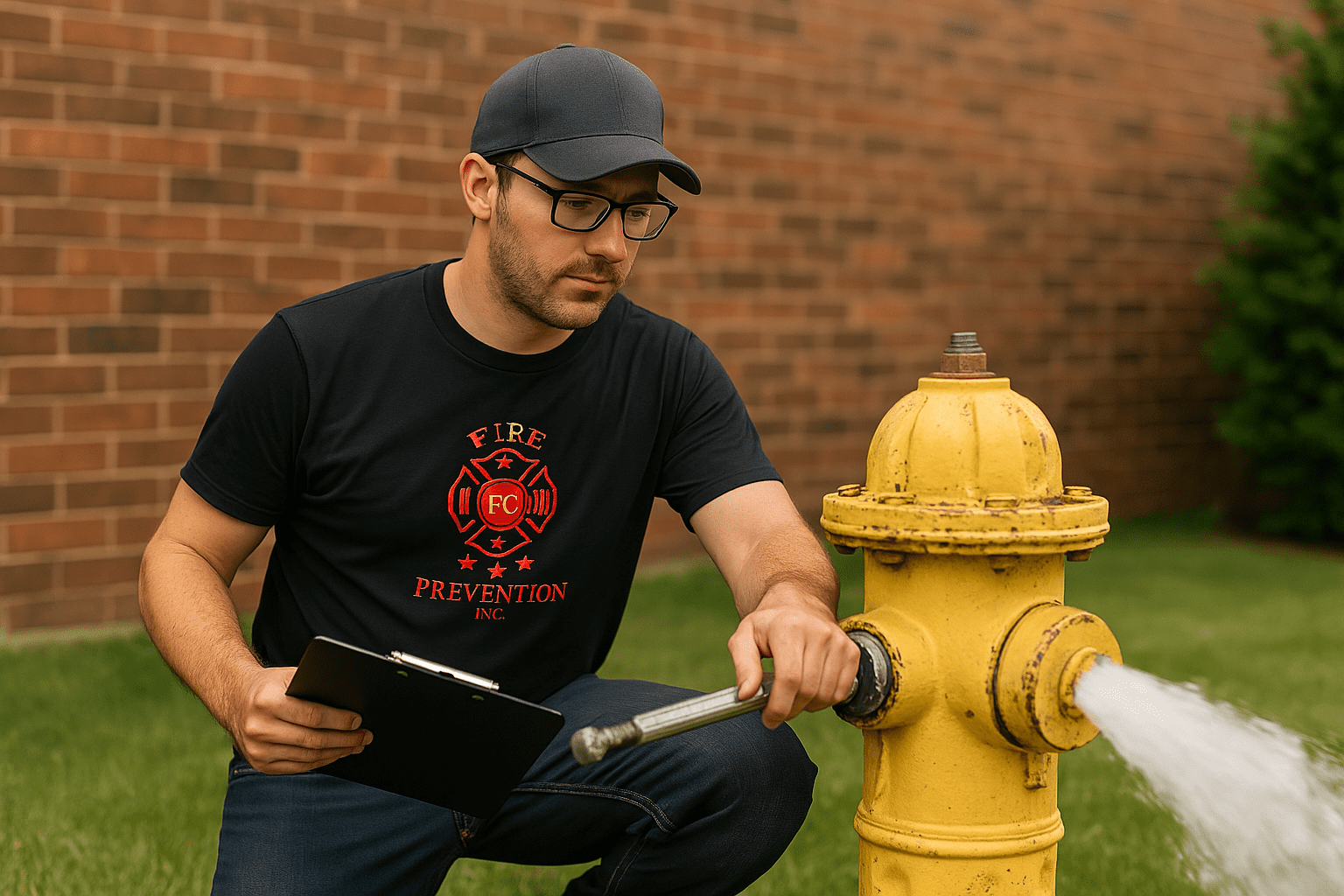
Our Team’s Collective Achievements
We leverage the experience of our team members, setting us apart in the fire safety industry. Our commitment to innovation and continuous improvement ensures we deliver top-tier solutions to our clients. Together, we’ve built a reputation for reliability, expertise, and excellence in every project we undertake.
Latest Insights from FC Fire Prevention
Dive into our latest articles, where we share insights, tips, and updates on fire safety and prevention. Stay informed with our expertly crafted content, designed to keep you ahead in maintaining a safe environment. From regulatory changes to innovative fire protection strategies, we cover the topics that matter most. Empower yourself with the knowledge to safeguard your property and loved ones .
Clients & Partners
We’re advancing fire safety by partnering with leaders in AI and Web3, driving innovation and efficiency in fire prevention. Explore how we’re shaping the future together. Through these collaborations, we’re enhancing the capabilities of our fire safety solutions, making them smarter and more adaptable. Together, we’re setting new standards for protection and sustainability in the industry.
Setting the Standard in Fire Safety
Our accreditation with the Better Business Bureau represents our unwavering focus on maintaining the highest ethical and professional standards. We continually strive to lead the industry by offering innovative fire protection solutions tailored to the unique needs of our clients. Each project we undertake reflects our dedication to ensuring the utmost safety for businesses and communities alike. With FC Fire Prevention, you can trust that your safety is in experienced and dependable hands.
Frequently asked questions
A: In Ontario, fire alarm systems are required to be inspected and tested annually by a qualified technician, as mandated by the Ontario Fire Code. Additionally, monthly visual inspections and tests of specific components, such as control units and power supplies, are recommended to ensure ongoing functionality. Regular testing is crucial for early fire detection and occupant safety.
For more information, visit the Ontario Association of Fire Chiefs.
A: Yes, the Ontario Fire Code requires that certain fire alarm components be tested on a monthly basis. This includes checking the control panel for trouble signals, ensuring batteries are in good condition, and confirming that visual indicators are functioning properly. Monthly testing helps identify issues promptly and maintains system reliability.
Detailed procedures can be found in NFPA 72.
A: Testing procedures for fire alarm systems typically include:
- Visual Inspection: Check all devices for signs of damage or obstruction.
- Functional Testing: Activate smoke detectors, heat detectors, and manual pull stations to ensure they trigger the alarm.
- Alarm Notification Devices: Verify that all bells, horns, and strobe lights function correctly.
- Control Equipment: Test the fire alarm control panel for proper operation and check for any trouble indicators.
- Power Supplies: Confirm that both primary and backup power sources are operational.
- Documentation: Record all test results and any corrective actions taken.
These procedures align with the standards set by NFPA 72 and the Ontario Fire Code.
A: During a yearly inspection, the following components should be tested:
- All Detection Devices: Smoke detectors, heat detectors, and carbon monoxide detectors.
- Initiating Devices: Manual pull stations and other devices that initiate an alarm.
- Notification Appliances: Sirens, bells, horns, and strobe lights.
- Fire Alarm Control Panel: Check for proper operation, software updates, and error codes.
- Emergency Functions: Testing of interfaces with other systems, such as elevator recall, door releases, and HVAC shutdowns.
- Power Supplies: Test both primary power and backup batteries or generators.
This comprehensive testing ensures compliance with the Ontario Fire Code and NFPA 72.
A: Inspecting a fire system involves several steps:
- Pre-Inspection Review: Examine previous inspection reports and maintenance records.
- Visual Inspection: Check all system components for damage, wear, or obstruction.
- Functional Testing: Activate detectors and manual stations to verify alarm initiation.
- Notification Testing: Ensure all alarms and notification devices are audible and visible throughout the premises.
- Control Panel Evaluation: Check for error messages and verify that all inputs and outputs function correctly.
- Power Supply Check: Test both primary and backup power sources.
- System Integration: Confirm proper communication between the fire alarm system and other building systems like sprinklers and emergency lighting.
- Documentation: Record findings, noting any deficiencies and corrective actions required.
Following these steps ensures the fire system operates effectively and complies with regulatory standards.
Refer to NFPA 72 for detailed guidelines.
A: Smoke alarms in Canada should be:
- Tested Monthly: Press the test button to ensure the alarm sounds.
- Batteries Replaced Annually: Even if the alarm is hardwired, backup batteries should be replaced.
- Replaced Every 10 Years: Smoke alarms have a limited lifespan and should be replaced to ensure reliability.
Regular testing and maintenance are essential for early detection of fires.
More information is available at Canada.ca – Fire Safety.
A: Fire extinguishers should undergo:
- Monthly Visual Inspections: Ensure they are accessible, fully charged, and not damaged.
- Annual Maintenance Checks: Conducted by a certified professional to inspect the internal components and verify operational readiness.
- Hydrostatic Testing: Every 5 to 12 years, depending on the type of extinguisher, to check the integrity of the cylinder.
These practices comply with NFPA 10 and the Ontario Fire Code.
A: Sprinkler systems require:
- Weekly and Monthly Inspections: Owner or designated personnel should perform visual checks of control valves and gauges.
- Quarterly Inspections: A professional should inspect alarm devices, control valves, and other components.
- Annual Inspections: Comprehensive inspection and testing by a qualified technician, including flow tests and alarm verification.
- Five-Year Internal Inspections: Check for obstructions or corrosion inside piping.
These intervals are specified in NFPA 25 and mandated by the Ontario Fire Code.
Refer to the Canadian Automatic Sprinkler Association for more details.
A: Fire extinguishers should undergo:
- Monthly Visual Inspections: Ensure they are accessible, fully charged, and not damaged.
- Annual Maintenance Checks: Conducted by a certified professional to inspect the internal components and verify operational readiness.
- Hydrostatic Testing: Every 5 to 12 years, depending on the type of extinguisher, to check the integrity of the cylinder.
These practices comply with NFPA 10 and the Ontario Fire Code.
A: Yes, fire inspections are mandatory in Ontario. The Ontario Fire Code requires property owners and managers to ensure their buildings comply with fire safety regulations. Regular inspections help to:
- Identify Hazards: Detect potential fire risks.
- Ensure Compliance: Adhere to legal requirements.
- Protect Occupants: Enhance the safety of building residents and visitors.
Failure to comply can result in fines, legal action, or closure of the premises.
Learn more at the Ontario Ministry of the Solicitor General.
A: A fire safety plan is required in Ontario for certain types of buildings, including:
- Residential Buildings: With more than 10 occupants or multiple dwelling units.
- Commercial and Industrial Properties: Depending on size and occupancy.
- Assembly Occupancies: Such as theaters, halls, and restaurants.
- Educational and Healthcare Facilities: Schools, hospitals, and care homes.
The plan must:
- Be Approved: By the local fire department.
- Include Procedures: For evacuation, fire prevention, and maintenance of fire protection systems.
- Be Reviewed Regularly: Updated to reflect any changes in the building or occupancy.
For assistance, see the Ontario Fire Marshal’s Public Fire Safety Guidelines.
A: The Ontario Fire Code mandates:
- Installation and Maintenance of Fire Protection Systems: Including alarms, sprinklers, and extinguishers.
- Regular Inspections and Testing: Specific schedules for different equipment.
- Fire Safety Plans: Development, approval, and implementation where required.
- Emergency Procedures: Clear evacuation routes and drills.
- Building Standards: Use of fire-resistant materials and construction methods.
- Occupant Safety Measures: Proper signage, lighting, and accessibility.
Compliance with the Fire Code is legally required and essential for ensuring the safety of all building occupants.
For a comprehensive understanding, refer to the Ontario Fire Code.
A: To schedule a fire inspection in Toronto:
- Contact Toronto Fire Services:
- Phone: Dial 311 within Toronto.
- Email: [email protected].
- Hire a Certified Fire Protection Company:
- Engage professionals who can conduct a preliminary inspection and ensure your property meets all requirements before the official inspection.
- Prepare Necessary Documents:
- Have your fire safety plan, previous inspection reports, and maintenance records available.
An inspection will verify compliance with the Ontario Fire Code and local bylaws.
Visit Toronto Fire Services for more information.
A: To report a fire code violation:
- Call 311: Provide the address and details of the violation.
- Online Reporting: Use the Toronto Fire Services Contact Form.
- Anonymous Reporting: You can choose to remain anonymous if preferred.
Prompt reporting helps authorities address safety hazards and enforce compliance.
For more information, visit Toronto Fire Prevention.
